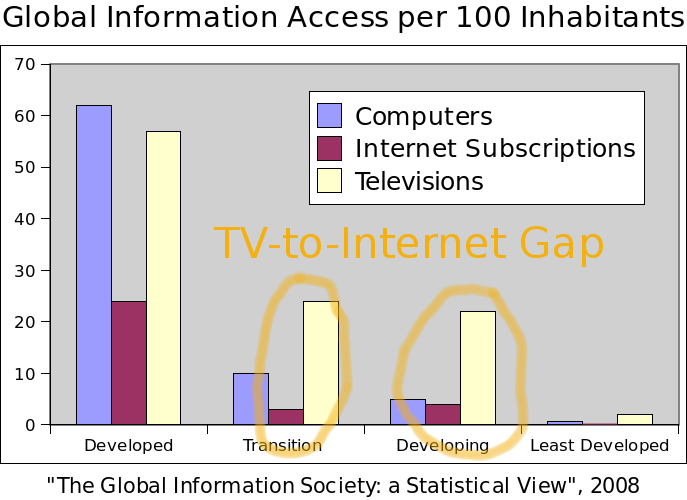
Only approximately 20% of the developing world are internet users. The remaining 80% do not have access to online reference sources such as Wikipedia, online libraries of books and information to improve literacy, nor access to a computer to develop technological skills.
The Humane Reader device addresses this gap by providing the equivalent of a 5,000 book library in content at very low cost to households, libraries, and schools. No internet connection is required - the Humane Reader requires only a television set.
Books and text are stored on a simple SD memory Card - the type used by digital cameras - which are relatively low cost (~$4 for 2GB in bulk) and can hold the equivalent of thousands of books. The Humane Reader allows a user to access the contents of the SD Card for display on a common TV set.

The above chart shows the number of computers, television sets, and internet subscriptions (dialup or broadband connections) per 100 inhabitants in the Developed world (USA, Canada, Europe, Japan, Australia, etc), and the Developing World (India, China, most others).
As can be seen in the chart, televisions are far more common in the Developing countries than computers or internet connections. There are indeed more than half a billion more television sets than internet connections in the developing world, providing a broad market.
The Humane Reader has been developed from the ground up with cost in mind. The basic unit can be produced for less than $20 in mass quantities. Thus for less than the cost of a single textbook the Reader can provide the equivalent of a five thousand book library.
Wikipedia is the first content provided for use with the Humane Reader. A single memory card can hold most if not all of Wikipedia text in a variety of languages. The device provides search capabilities, and can be connected to an optional keyboard for more fluid text input.